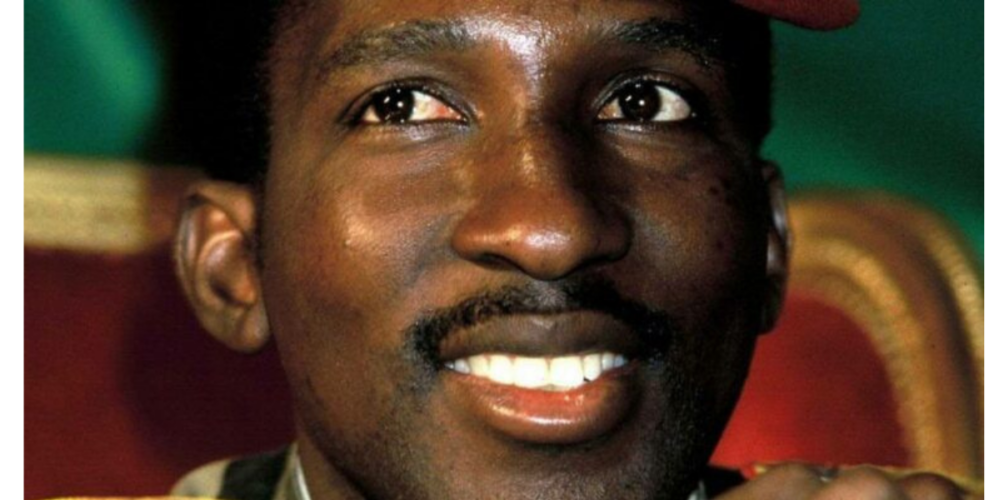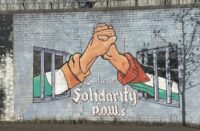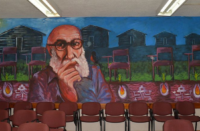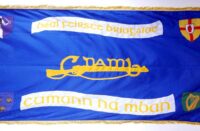Thomas Sankara was born on 21st December 1949 in Upper Volta, which was a French colony, and like all African colonies at the time, the white colonisers exploited the natives by forcing them to build infrastructure so that they could more efficiently exploit the resources of the nation. Upper Volta was an incredibly poor nation. As Sankara himself once stated: “out of 1,000 children born the same year I was, half died in the first three months”.
Upper Volta would get its independence on the 5th of August 1960. The first president of Upper Volta, Maurice Yameogo would start a trend, only broken by Sankara himself, of being happily exploited by French neo-colonialism. Even though the French had to give up its African territory in the 1960s, the French state got the new leaders to sign a “co-operation agreement”. This gave France rights over natural resources, maintained the presence of French troops indefinitely and, most importantly, kept these countries’ currencies linked to France’s currency, the CFA Franc. Now, of course, while this was ostensibly a choice, when former president of Guinea Sékou Touré rejected this “agreement”, announcing that he would rather be “poor in freedom than rich in slavery”, the French did everything in their power to destroy his country. They cut foreign aid and printed counterfeit banknotes to destroy the economy – and it worked.
In 1966, Sankara was accepted into the country’s most prestigious military academy, the École Militaire Préparatoire of Ouagadougou. In this college, he would be heavily influenced by two men. The first was Adama Touré, the leader of the Marxist-Leninist PAI (Parti Africain de l’Indépendance). Touré would teach the students his own form of history as he said: “My French colleagues did not appreciate my courses on decolonisation”. The second man who influenced Sankara was Amílcar Cabral. His influence led to Sankara using Marxism-Leninism as a methodology for critiquing capitalism and imperialism.
In October 1972 Sankara finished his 3 years of officer training. A coup in October 1980 saw Saye Zerbo come to power. Zerbo wanted to bring junior recruits into the army to ease military tension so Sankara was given the position of head of the division, based in Ouagadougou. Then in September 1981, Sankara became Secretary of State in charge of Information. In April 1982 he joined with striking workers against anti-striking laws and the government. He would be imprisoned for six months due to this; however, after numerous protests, he was freed.
He became president of Burkina Faso on the 4th of August 1983 after a coup against Jean-Baptiste Ouedraogo who had himself couped Saye Zerbo in 1982. He gave a radio speech denouncing the former presidents as “serving the interest of the enemies of the people”, namely “foreign domination and neocolonialism”. He would then commence a plethora of wide-sweeping reforms in Burkina Faso.
He greatly improved the situation of women in Burkina Faso by giving them rights they never had before like inheritance, minimum age for marriage, the right to divorce and many more. He saw the emancipation of women as essential, as he once stated:
“The revolution and women’s liberation go together. We do not talk of women’s emancipation as an act of charity or because of a surge of human compassion. It is a basic necessity for the triumph of the revolution”..
In two weeks Sankara vaccinated over two million children from diseases such as measles and meningitis which often killed between 18,000 and 50,000 children a year.
He set up the Alpha Commando literacy campaign which improved literacy in the country. Before Sankara, only 18% of children were in primary school and 3% were in secondary. The campaign was set up in February 1986 and lasted two and a half months, using volunteers to teach basic literacy to 30,000 rural people.
He significantly improved the nation’s irrigation and made sure local people and local resources were used to lessen dependence on foreign powers. This was a key factor in raising cereal production by 75%.
He was assassinated in a coup led by Blase Comparé on October 15th 1987 with help from the French and the Ivory Coast. Comparé would then immediately reverse Sankara’s nationalisation policies and other important reforms. Comparé would lead Burkina Faso for 27 years until popular protest overthrew him. Sankara’s legacy has never been forgotten in Burkina Faso, as during the protests that overthrew Comparé thousands of young men and women wore shirts adorned with his image and in 2023 he was proclaimed a hero of the nation of Burkina Faso.
References:
1. Harsch, E. (2014) Thomas Sankara: An african revolutionary. Auckland Park, South Africa: Jacana Media.
2. Sankara, T. (1990) in Women’s Liberation and the African Freedom Struggle. New York: Pathfinder.






